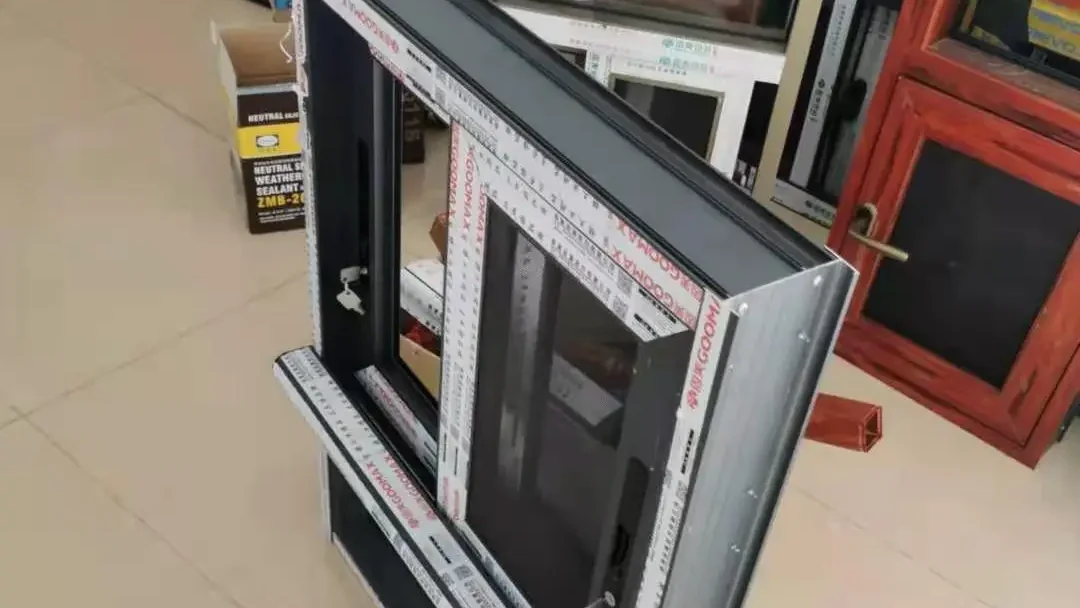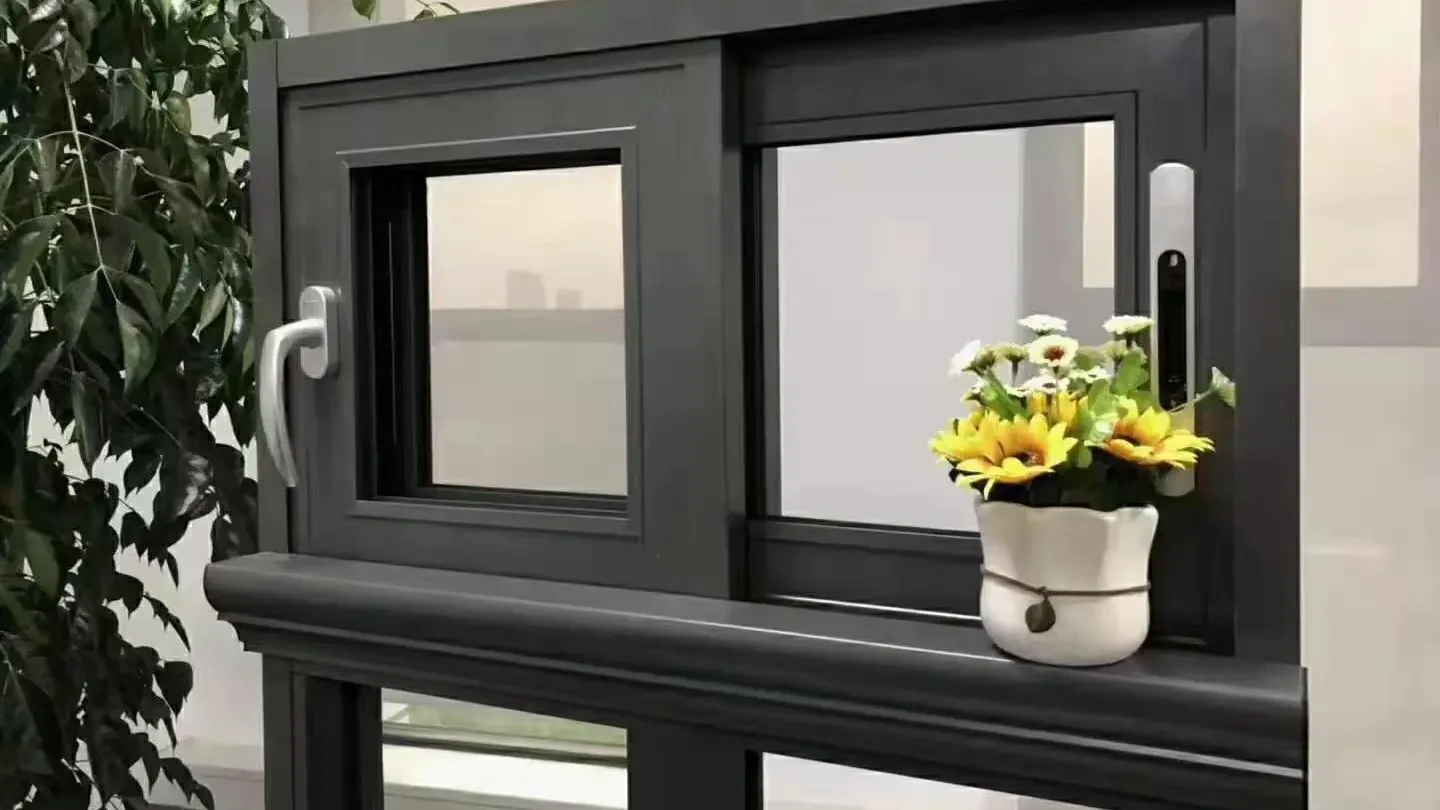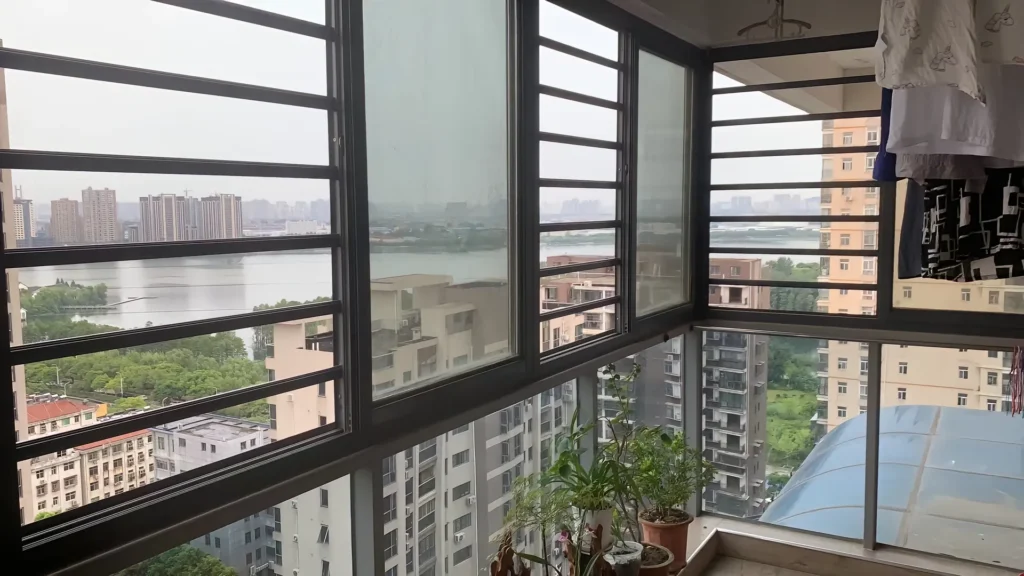Aluminum sliding windows can play a significant role in improving energy efficiency in buildings. Here’s how they address various energy efficiency issues:
1. Thermal Break Technology
Aluminum, by itself, is a good conductor of heat, which can lead to energy losses. However, modern aluminum sliding windows often incorporate thermal break technology. This involves placing a non-conductive material, such as plastic or a composite, between the interior and exterior parts of the aluminum frame. This break reduces the transfer of heat, improving the window’s insulating properties and reducing energy loss.

2. Double or Triple Glazing
Aluminum sliding windows can be fitted with double or triple glazing, where two or three panes of glass are separated by a layer of gas (like argon or krypton). This setup creates an insulating barrier that reduces heat transfer, keeping the interior temperature more stable and reducing the need for heating or cooling.

3. Low-E Coatings
Low-emissivity (Low-E) coatings are thin metallic layers applied to the glass that reflect heat while allowing light to pass through. These coatings help keep the heat inside during winter and outside during summer, improving the energy efficiency of the windows.

4. Sealing and Gaskets
High-quality sealing and gaskets in aluminum sliding windows prevent air infiltration and exfiltration. This minimizes drafts and leaks, ensuring that the indoor environment remains comfortable without excessive reliance on heating or cooling systems.

5. Solar Heat Gain Control
Aluminum sliding windows can be designed to control solar heat gain, which is the increase in temperature in a space due to sunlight. By selecting appropriate glazing options and coatings, these windows can reduce unwanted solar heat gain, lowering cooling costs in hot climates.

6. Durability and Low Maintenance
Aluminum is durable and requires minimal maintenance compared to other materials. This longevity means that the windows maintain their energy efficiency properties over a longer period without significant deterioration.

7. Customization and Design
Aluminum sliding windows can be customized to fit various sizes and shapes, allowing for better design flexibility. This customization enables architects and builders to design more energy-efficient buildings by optimizing window placement and size for natural light and ventilation.

8. Integration with Other Energy-Saving Technologies
Aluminum sliding windows can be integrated with other energy-saving technologies, such as automated shading systems and smart glass, which can further enhance energy efficiency by adjusting to environmental conditions in real-time.

Conclusion
Aluminum sliding windows, with their modern technological advancements, address energy efficiency issues effectively by providing superior insulation, reducing thermal transfer, preventing air leaks, and controlling solar heat gain. These features help reduce energy consumption for heating and cooling, contributing to more sustainable and energy-efficient buildings.
You can use our online contact form to get in touch with us today.We look forward to helping you create the home of your dreams with our aluminium windows and doors! WhatsApp:86 13809889264
